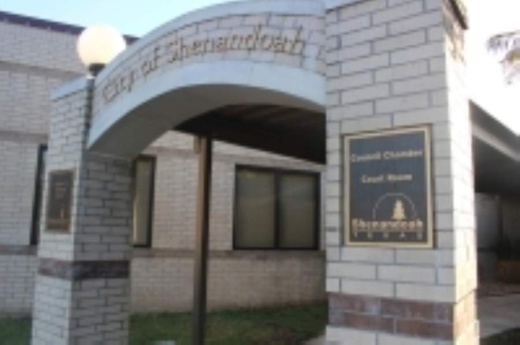Shenandoah Public Works Director Joseph Peart said the rate study was done as part of a five-year plan so council could have a better understanding of how to plan for expected expenses for water use and operational maintenance.
The study determines the amount needed to maintain the city's water and sewer enterprise fund, which Peart said is not used for profit.
"Ideally, the revenues you bring in are going to cover the expenses you have going out," Peart said. "It is not there to make money. That was one of the key assumptions when determining these rates."
Information regarding the study was presented by John Bleyl, president and CEO of Bleyl Engineering, who gave multiple options to determine the impact of rate increases.
As it currently stands, if a household uses 3,000 gallons of water in a month, the bill is $16.91. The first option presented by Bleyl, which includes financing a portion of the expenses through the Texas Water Development Board Clean Water State Revolving Fund, shows the new bill would be $22.91, with rates for residential water and sewer both increased by $3. Without financing, which Bleyl said his firm is not recommending, the bill would be $24.41.
A household that uses 7,000 gallons per month, which Bleyl said is closer to an average monthly use, the bill is currently at $35.95. With the new rates, the bill would increase to $50.45.
"These rates are tiered rates," Bleyl said. "The more water you use, the more expensive the incremental rate is per 1,000 gallons."
When it comes to producing revenue, Bleyl said the majority comes from commercial use, with residential producing 19% on a monthly basis, or around $37,118. With the new proposed rates with the loan, residents would be lowered to producing 18% of the monthly revenue, or around $51,333, as the cost of commercial use increases.
Bleyl also presented a comparison of current and proposed rates against neighboring communities, including Oak Ridge North, Conroe, Montgomery and Rayford Road MUD. With the proposed changes, including the loan, Shenandoah residents' cost with 10,000 gallons will be $71.85, up from $49.35. The closest comparison in terms of cost is Montgomery, at $93.
According to Bleyl, residential water and sewer bills would still be lower than the other neighboring entities. Commercial customers, on the other hand, would still remain higher than the neighboring communities due to a higher percentage of commercial users.
The last rate change in Shenandoah was made in November 2010.
No decision was made on adjusting the rate change, as the item on the agenda was labeled as discussion-only. Bleyl said his firm recommends adopting a rate change by Oct. 1 to line up with the new fiscal year if council chooses to make the change.





